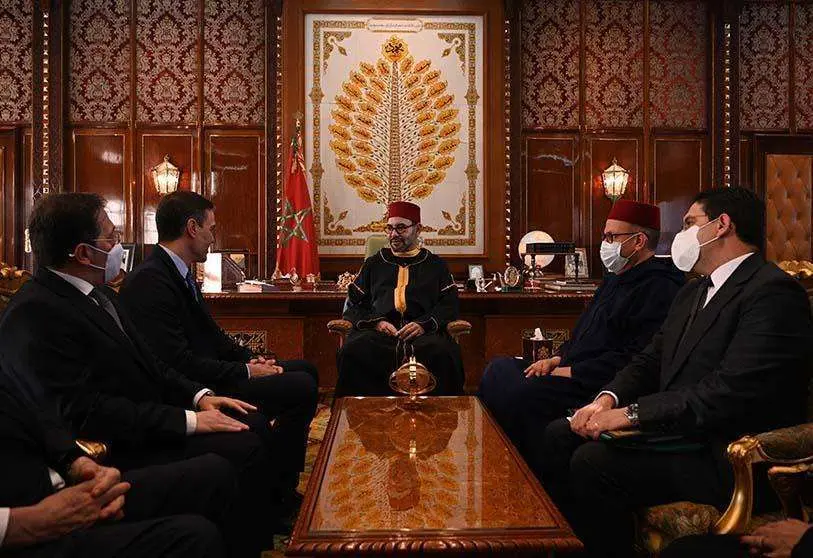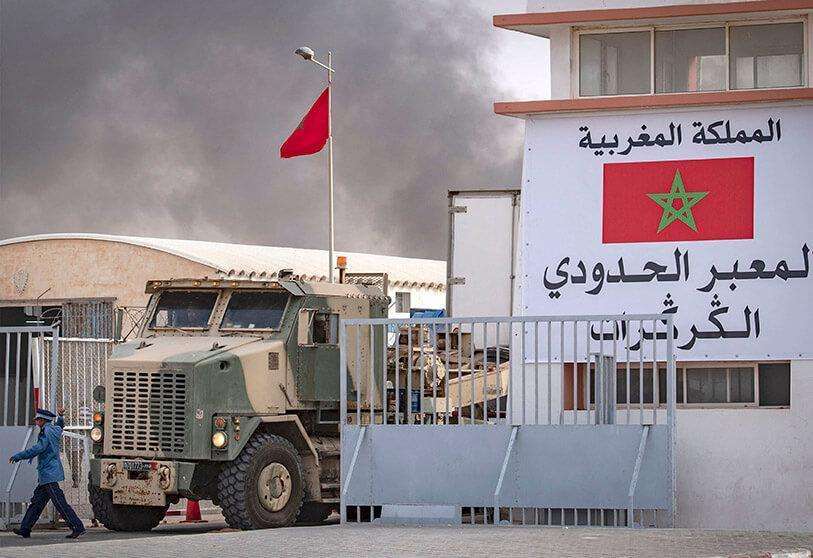España y Marruecos afianzan su hoja de ruta

The President of the Spanish Government, Pedro Sánchez, has renewed his strong support for the roadmap established between Spain and Morocco, set during the last reception of King Mohammed VI to the Spanish leader in Rabat in April 2022, which took place after the last diplomatic rapprochement between the two countries.
Pedro Sánchez presided over the VII Conference of Spanish Ambassadors accredited abroad held at the headquarters of the Ministry of Foreign Affairs, with the participation of almost 130 ambassadors, and the Spanish President claimed the "fundamental role" that Spain is called upon to play as a country in the face of the Presidency of the EU during the second half of this year. And as a European point of reference, the Spanish nation is setting out important lines of international action, in this case very much focused, as could not be otherwise, on the Maghreb, and more specifically on Morocco.
The President of the Spanish Executive pointed out that the new road map established between the two neighbouring countries places "bilateral cooperation on more solid pillars". The new stage opened since the re-establishment of full relations between Spain and Morocco will strengthen "mutual trust", as Pedro Sánchez himself indicated.
Nuestra acción exterior es continuación de nuestra convicción interior. Nuestros embajadores proyectan al mundo los valores que compartimos: paz y solidaridad, sostenibilidad y feminismo.
— Pedro Sánchez (@sanchezcastejon) January 9, 2023
Gracias por vuestra labor, sois imagen y emblema de un país extraordinario llamado España. pic.twitter.com/RDX3ykb0JI
The Spanish President of the Government stressed the importance of 'stability' in North Africa in order to 'move towards more prosperous cooperation'. Precisely, "stability and security" in the south is a "priority", as the Spanish leader reaffirmed.
"I said before that during the Spanish Presidency of the European Union we will organise a summit with the southern neighbourhood at the European level to implement and develop this positive agenda that we must have with our southern neighbours", Sánchez himself pointed out, as reported by various media such as The North Africa Post.
With the new road map, Morocco and Spain are committed to working on the basis of a "spirit of trust and consultation", while reactivating the working groups created between the two countries to promote bilateral multi-sectoral cooperation. Several issues are of vital importance to both countries, such as the control of irregular migration, the fight against terrorism and economic issues such as fishing and exports. All of these are issues on which Morocco and Spain are working closely and in a spirit of total cooperation, marked by the good harmony that has been reinforced since the re-establishment of normal and full diplomatic relations between the two countries.

Along these lines, Pedro Sánchez advocated a "positive agenda" with North Africa in general. In addition to the roadmap with Morocco that benefits mutual interests, there is also the intention to 'have the best relations' with Algeria, another important player in the Maghreb, but a political rival of the Moroccan kingdom.
Pedro Sánchez's message on Morocco is a further step in the strengthening of diplomatic relations, which were resumed after the diplomatic crisis triggered by the reception on Spanish soil of Brahim Ghali, leader of the Polisario Front, to be treated for a major respiratory ailment in a hospital in Logroño in April 2021. The Kingdom criticised the lack of cooperation and information on the part of a country considered an ally and neighbour, and other episodes followed that made the situation more tense, such as the entry of thousands of irregular migrants through the Ceuta border, problems with important mechanisms such as Operation Crossing the Strait, from which Spain was excluded, and the withdrawal of the Moroccan ambassador from Madrid.
Spain tried to put the situation back on track with the interventions of King Felipe VI, who sent messages of political rapprochement with Morocco, and with the appointment of José Manuel Albares as Minister of Foreign Affairs, replacing Arancha González Laya, who was marked by Brahim Ghali's entry into Spain and the subsequent judicial investigation to clarify the conditions under which the Polisario leader entered Spanish territory.

Finally, Spain took a major step forward with the recognition by Pedro Sánchez's government of Morocco's proposal for the resolution of the Western Sahara conflict as the most 'serious, credible and realistic' way to resolve the Sahrawi conflict that has lasted more than four decades. A proposal that includes a broad autonomy for Western Sahara under Moroccan sovereignty, respecting the resolutions of the United Nations. This formula has received significant international support, including from the United States, Germany, the United Arab Emirates and Spain itself. In contrast to the Polisario Front's opposing initiative, which advocates holding a referendum on independence for the Sahrawi population. This option has less support, including that of Algeria, a country at loggerheads with Morocco, especially since the Algerian state decided to break off diplomatic relations with the Alawi kingdom in August 2021 due to deep political differences.








